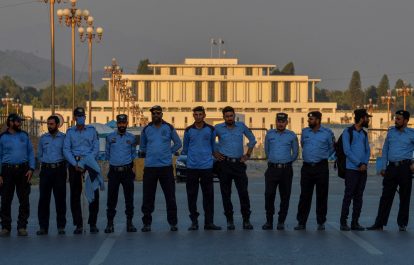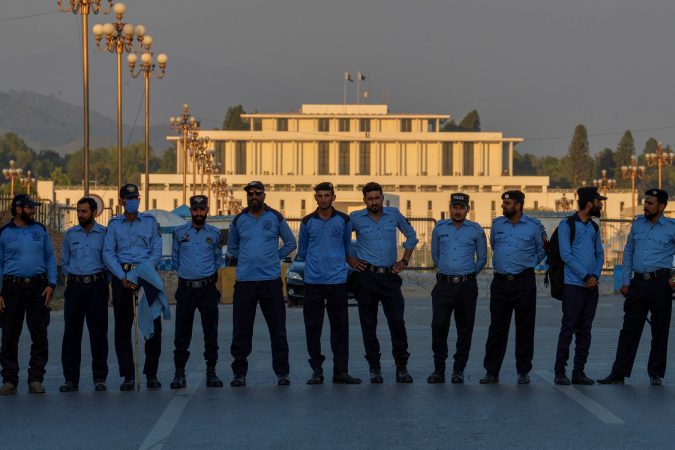Press Statement
Pakistan: New ‘contempt’ law threatens press freedom
25 May, 2023

Pakistan’s parliament has approved its Contempt of Parliament Bill 2023 which aims to strengthen parliamentary oversight powers, despite issues raised by media and legal stakeholders regarding the bill’s potential to limit freedom of expression. The International Federation of Journalists (IFJ) and its affiliate, the Pakistan Federal Union of Journalists (PFUJ), express concern at the bill’s potential to be used against government opponents, including independent journalists.
The National Assembly of Pakistan passed a bill on May 16 that will authorise lawmakers to punish those who are deemed to have committed contempt, failed to obey the orders of the parliament or its committees, failed to provide documents, submitted tampered documents before a House or committee, or violated the privilege of any member of the Parliament, including all Members of the National Assembly and Senate, among other clauses. The bill affords parliament the authority to prescribe a punishment of up to six months imprisonment, or PKR 1,000,000 (approx. USD 3,477) fine.
As stipulated under the bill, the speaker will now form a committee of 24 members from both leading and opposition coalitions within 30 days of the legislation’s adoption. Any matter of insult by an institution or person will be brought before the committee, which will then submit its recommendations to the National Assembly and Senate within 60 days. Based on the committee’s recommendations, the case will be referred to a separate anti-contempt committee, which will consist of five members, three from the National Assembly and two from the Senate.
The bill has been criticised by media rights and press freedom advocates for its potential use to arbitrarily restrict the media and civil society in Pakistan. In an article published in Dawn, barrister Rida Hosain argued that the bill’s vague and punitive measures may pull dissenting, critical or independent voices into the purview of the law. Hosain drew comparisons to the 2016 enactment of the Prevention of Electronic Crimes Bill, its expansion under PTI governance and the grave challenges the law presented to freedom of expression and the press in Pakistan. The PFUJ also expressed serious reservations at the law’s potential to be used to curb criticism against government policies.
The bill will need to be approved by Pakistan’s senate before passing into law and may still be challenged by the country’s superior courts.
PFUJ President GM Jamali and Secretary General Rana M Azeem expressed reservations at the parliament’s legislation, stating that: “by using this bill, their opponents, particularly journalists, are likely to be used against them, which is unacceptable. […] The PFUJ leadership has demanded that this bill be interpreted, and the government should ensure that it is not used against journalists otherwise the entire journalist community will be forced to protest the bill to protect their rights.”
The IFJ said: “The so-called contempt bill endangers the democratic right to critique government policy and could be used to restrict freedom of expression in Pakistan. The IFJ urges Pakistan’s parliament to conduct thorough consultation with media stakeholders before enacting such legislation, to ensure there is no threat to journalists or media workers.”
Written By
 IFJ Asia-Pacific
IFJ Asia-Pacific
The IFJ represents more than 600,000 journalists in 140 countries.
For further information contact IFJ Asia-Pacific on +61 2 9333 0946
Find the IFJ on Twitter: @ifjasiapacific
Find the IFJ on Facebook: www.facebook.com/IFJAsiaPacific
Comments
Resources
- IFJ South Asia Media Bulletin, February 2023 02/15/2023 Download
- IFJ South Asia Media Bulletin, January 2023 01/18/2023 Download
- Nepal Press Freedom report 2022 01/03/2023 Download

